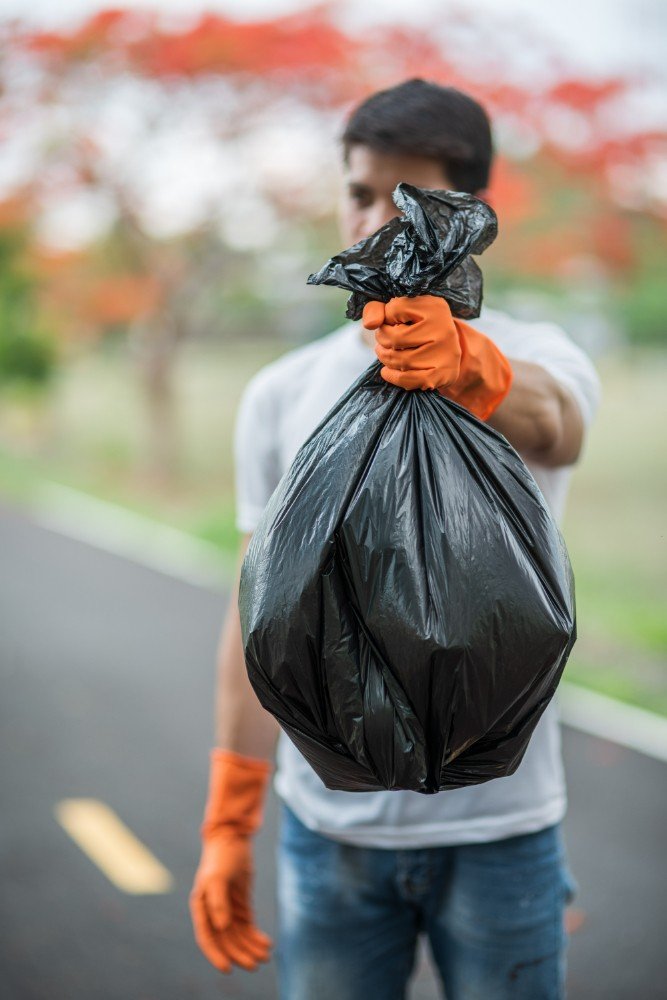Popular Questions
Find answers to the most frequently asked questions about Northamps’ waste management services and how we help businesses and households with eco-friendly solutions.
Northamps offers comprehensive waste management services, including solid waste, e-waste, liquid waste, and organic waste solutions, tailored to residential, commercial, and industrial needs.
We segregate waste at the source into categories like recyclables, organic, and hazardous. Recyclables are processed for reuse, while organic waste is composted, and hazardous waste is safely disposed of.
We utilize aerobic and vermicomposting methods for organic waste, converting it into nutrient-rich compost, reducing landfill waste and promoting sustainable soil health.
Our system reduces landfill waste, promotes recycling, conserves resources, lowers carbon emissions, and turns organic waste into compost, supporting a circular economy and cleaner environment.
We offer tailored e-waste solutions for businesses, ensuring secure collection, data destruction, and environmentally responsible recycling of electronic components and hazardous materials.
General Questions
Get general information about our waste management approach, service areas, and the innovative methods we use to reduce environmental impact.
Waste collection from residential areas is scheduled weekly, but frequency can be customized based on the community’s needs and waste generation levels to ensure timely and efficient service.
Yes, we provide specialized waste management solutions for construction sites, including debris removal, recycling of materials like metal and concrete, and safe disposal of hazardous substances.
Our system accommodates a wide range of recyclable materials, including paper, plastics, metals, glass, and certain electronic components, helping reduce waste and promote sustainability.
Yes, we offer dedicated solutions for managing both industrial and medical waste, ensuring compliance with safety regulations and environmentally responsible disposal of hazardous materials.
We minimize environmental impact by optimizing route efficiency, using eco-friendly vehicles, reducing landfill reliance, promoting recycling, and composting to ensure greener waste management practices.
Solid Waste Management Questions
Learn more about our solid waste management services, from collection to recycling, and how we ensure responsible handling of materials.
Northamps collects solid waste using scheduled pickups, ensuring proper separation of recyclables, compostables, and non-recyclables to ensure effective waste management from the source.
Northamps recycles paper, plastics, metals, glass, and organic waste like food scraps, helping reduce the overall waste sent to landfills.
Sorting waste ensures recyclables are processed properly, reducing the amount sent to landfills, conserving resources, and lowering greenhouse gas emissions.
Non-recyclable waste is disposed of in designated landfills or incinerated in controlled facilities to minimize environmental harm.
For cleanliness, waste should be collected at least once a week, but the frequency may increase based on local needs and the volume of waste generated.
Industrial Waste Management Questions
Discover our specialized solutions for managing industrial waste efficiently, complying with regulations, and minimizing the environmental footprint of manufacturing processes.
Northamps manages various industrial wastes, including chemicals, hazardous materials, by-products from manufacturing processes, and general industrial debris.
Industrial waste is treated using methods like recycling, neutralization, incineration, or containment in secure landfills, depending on the type of waste.
Yes, many types of industrial waste, such as scrap metals and certain chemicals, can be recycled or reused, reducing the need for new raw materials.
Improper disposal can lead to soil, air, and water pollution, harming ecosystems, wildlife, and public health.
Industries can reduce waste by optimizing production processes, recycling materials, and using eco-friendly raw materials.
Domestic Waste Management Questions
Explore how we assist households in managing domestic waste, offering sustainable practices that help keep your home and community clean.
Northamps provides households with proper waste bins, educates them on sorting waste, and offers regular waste collection services.
Households can separate paper, plastics, metals, glass, and organic waste like food scraps for recycling.
The waste is taken to sorting facilities where recyclables are processed, organics are composted, and non-recyclables are properly disposed of.
Northamps collects organic kitchen waste for composting, turning it into nutrient-rich compost that can be used for gardening or agriculture.
Households can reduce waste by composting, recycling, avoiding single-use items, and buying products with minimal packaging.
Liquid Waste Management Questions
Understand our liquid waste management services, including safe disposal and treatment processes that protect water resources and maintain environmental safety.
Northamps treats liquid waste through filtration, chemical treatment, and safe disposal processes to prevent contamination of water sources.
Northamps handles sewage, greywater, industrial chemicals, and oils, ensuring each type is treated properly before disposal.
Improperly managed liquid waste can contaminate water supplies, harm aquatic life, and contribute to the spread of diseases.
Northamps uses advanced treatment plants to filter and purify liquid waste, ensuring it doesn’t leak into natural water sources.
Northamps uses filtration, sedimentation, chemical neutralization, and biological treatments to handle liquid waste safely.

